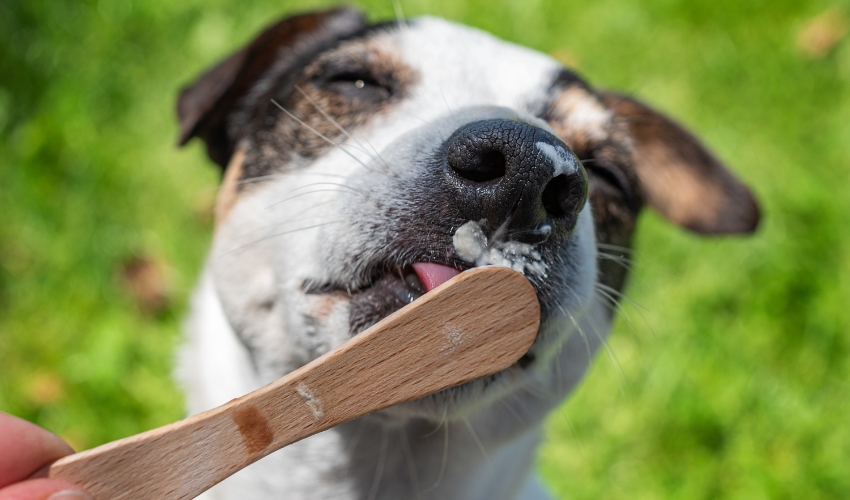As a responsible dog owner, you may notice even the trivial things about your pet, such as their breath. Suddenly smelling fish from your furry friend’s breath can be quite concerning. While this may seem petty, bad breath in dogs can indicate an underlying health problem. Let’s explore why your dog’s breath smells like fish and what you can do about it.
Reasons Your Dog’s Breath Smells Like Fish
-
Oral Hygiene
Like humans, dogs need proper dental hygiene to maintain fresh breath. If you don’t brush your dogs’ teeth regularly or provide dental chews, their mouth can become a breeding ground for bacteria. Over time, this bacteria can build up and cause bad breath.
-
Diet
The food your dog eats can also affect their breath odor. If your dog eats a lot of fish-based food or treats, their breath may naturally smell like fish. This is because the oils in fish can become concentrated in your dog’s mouth and cause an unpleasant odor.
If you suspect your dog’s diet is causing their bad breath, try switching to a different protein source or feeding them another type of food. You can also try adding fresh herbs like parsley or mint to their meals, which can help neutralize odors.
-
Digestive Issues
Sometimes, bad breath in dogs can be a sign of digestive issues. When your dog’s digestive system is not functioning properly, it can cause a buildup of gas in their stomach or intestines. This gas can then escape through their mouth, causing bad breath.
If you notice that your dog’s breath smells like fish and they are also experiencing other digestive symptoms like vomiting, diarrhea, or bloating, it may be time to see a veterinarian. They can help diagnose the underlying issue and provide treatment options to help get your dog’s digestive system back on track.
-
Kidney Disease
In some cases, bad breath in dogs can be a sign of kidney disease. When your dog’s kidneys are not functioning properly, toxins can build up in their body and cause a distinct odor in their breath. This odor is often described as smelling like fish or ammonia.
If you suspect your dog’s bad breath may be related to kidney disease, seeing a veterinarian as soon as possible is crucial. They can perform a blood test to check your dog’s kidney function and provide treatment options to help manage the disease.
-
Diabetes
Another potential cause of bad breath in dogs is diabetes. When your dog’s body is not producing enough insulin or is unable to use it properly, it can cause a buildup of ketones in their body. These ketones can then escape through their breath and cause an unpleasant odor.
If you suspect that your dog may have diabetes, it’s essential to see a veterinarian right away. They can perform a blood test to check your dog’s glucose levels and provide treatment options to help manage the disease.
-
Liver Disease
Liver disease can also cause bad breath in dogs. When your dog’s liver is not functioning properly, it can cause a buildup of toxins in their body, leading to a distinct odor in their breath. This odor is often described as smelling like fish or ammonia.
If you suspect your dog’s bad breath may be related to liver disease, seeing a veterinarian as soon as possible is important. They can perform a blood test to check your dog’s liver function and provide treatment options to help manage the disease.
7. Mouth Infections
When bacteria and other microorganisms grow and accumulate in a dog’s mouth, it can lead to an infection, which can cause an unpleasant odor. The bacteria in the mouth can break down proteins, releasing a foul odor that can smell like fish.
If you suspect your dog has a mouth infection, seeing a veterinarian as soon as possible is vital for proper diagnosis and treatment.
Tips To Prevent Dog’s Breath From Smelling Like Fish

There are several steps you can take to prevent your dog’s breath from smelling like fish:
- Proper Oral Hygiene: Dogs need good dental hygiene to maintain fresh breath. Brushing your dog’s teeth regularly, providing them with dental chews or toys, and feeding them a dental-specific diet can all help to prevent the buildup of bacteria in the mouth.
- Balanced Diet: Feeding your dog a balanced and nutritious diet can help to prevent bad breath. Avoid feeding them a lot of fish-based food or treats, as the oils in fish can become concentrated in the mouth and cause an unpleasant odor.
- Fresh Water: Ensure your dog always has access to fresh, clean water to help flush out their mouth and prevent bacteria buildup.
- Regular Veterinary Checkups: Regular checkups with your veterinarian can help to catch any underlying health issues that may be causing your dog’s bad breath. This is especially important if you notice a sudden change in their breath odor or other symptoms.
- Regular Professional Dental Cleaning: Regular professional dental cleanings can help remove any buildup of tartar and plaque that can cause bad breath and other dental problems. Your veterinarian can recommend how often your dog should have a dental cleaning based on their needs.
- Fresh Herbs: Adding fresh herbs like parsley or mint to your dog’s meals can help neutralize odors and freshen their breath.
By following these steps, you can help prevent your dog’s breath from smelling like fish and ensure their oral and physical health.
In Summary
There are many different reasons behind a dog’s foul-smelling breath. It can be as simple as neglected oral hygiene, too much fish in the diet, or digestive issues. However, it can also be caused by a serious medical condition such as liver or kidney disease, diabetes, or mouth infection. If your dog’s breath does not improve even after changing their diet and brushing their teeth regularly, it’s best to see a vet for a proper check-up and corresponding treatment.











